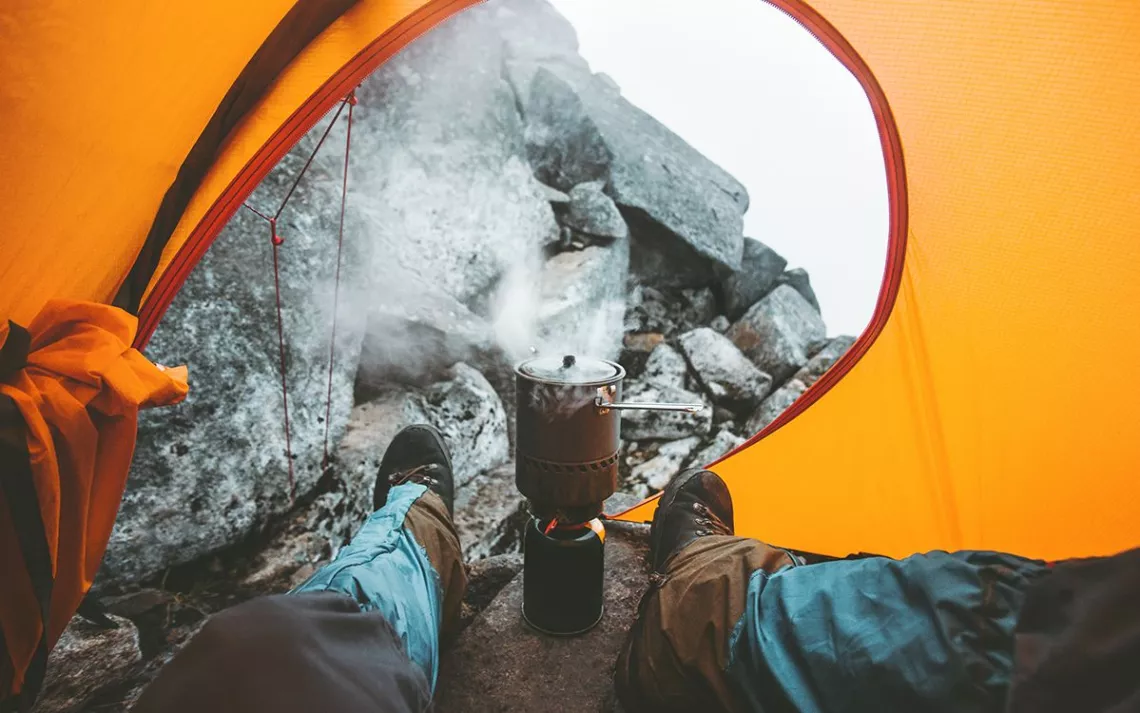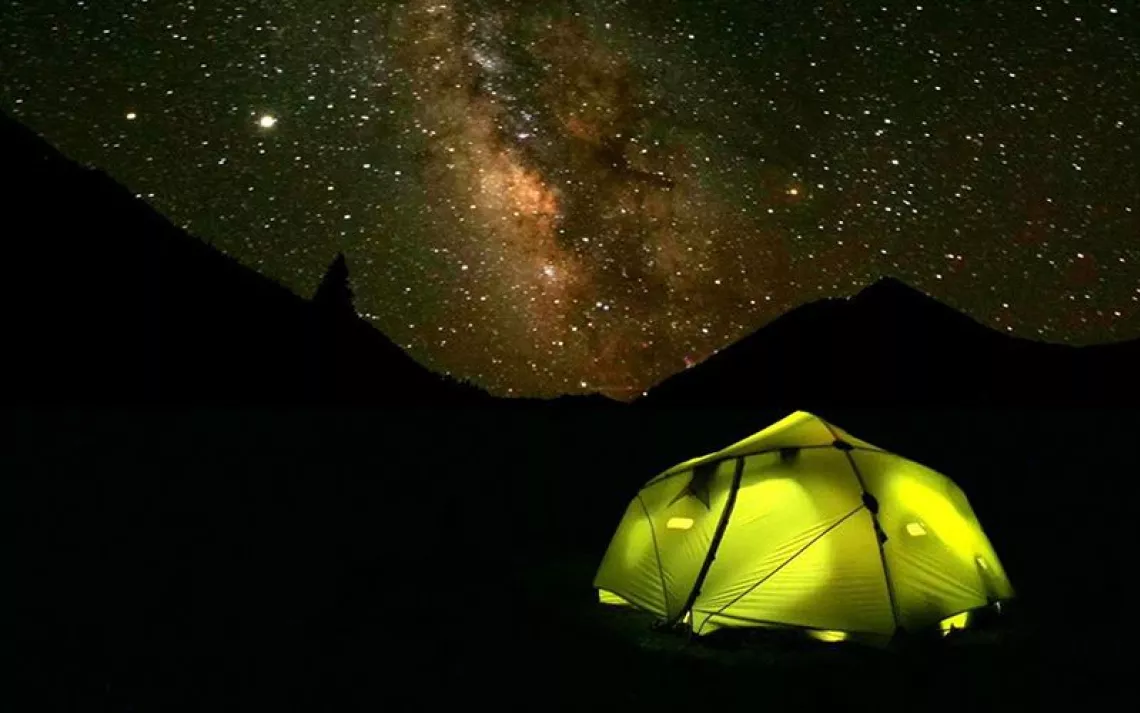ENVIRONMENT EXPLAINED
Leave-No-Trace-Friendly Trail Grub
Five brands making sustainably packaged hiking food
Whether you’re pressed for time or not all that creatively inclined in the kitchen, prepackaged backpacking meals and hiking snacks make for an appealing shortcut. From their protein bars to dehydrated dinners to filling breakfasts, trail-oriented food companies are innovating some pretty tasty grub. But for all their convenience and quality, much of what’s currently available leads to a heap of trash—running counter to many hikers’ desires to shrink their environmental footprints.
Luckily, a handful of companies have made the switch to recyclable or compostable packaging, often after significant investment in product development. Here are five worth checking out.
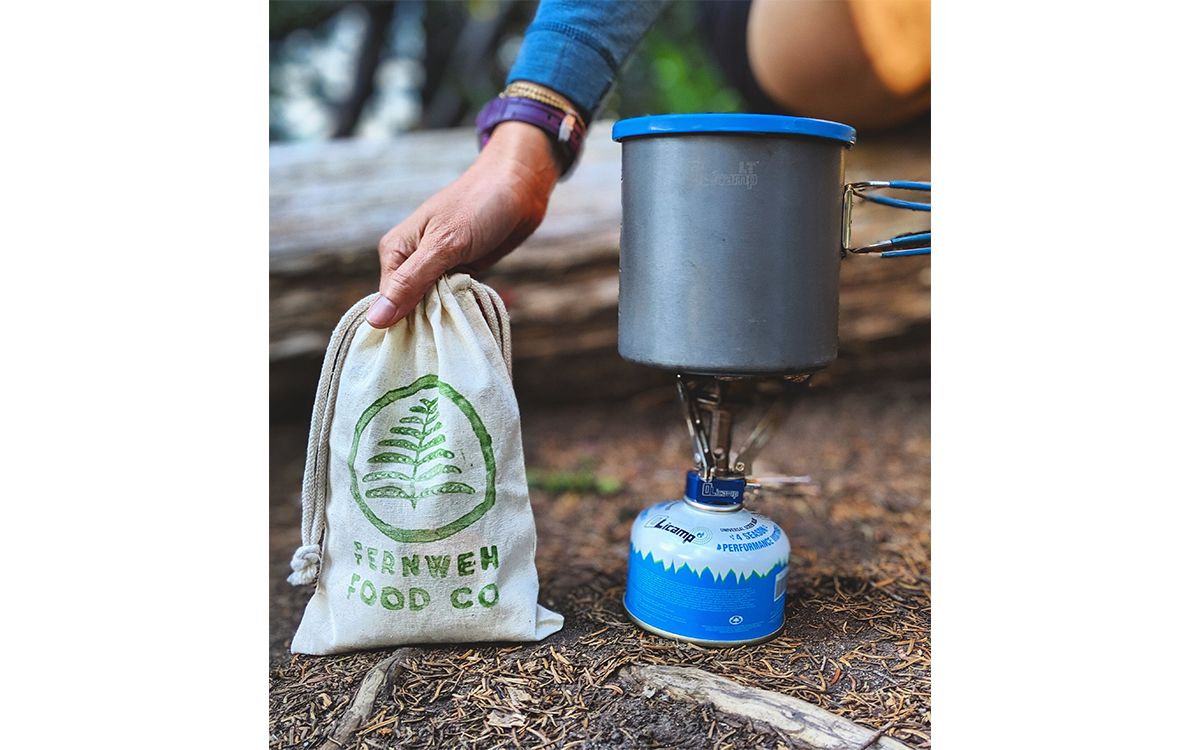
Fernweh Food Company borrows its name from a German word meaning “far-longing”—a sort of uber-wanderlust for far-flung places. Discouraged by trailhead trash, owner Ashley Lance started making from-scratch meals for her personal backpacking and bike-touring trips before turning her hobby into a business. Today, Fernweh customers can choose from two packaging options: a compostable bag or a reusable muslin bag. Those who opt for the latter can rehydrate grub inside a reusable silicone bag (included) or in their own pot or bowl. Fernweh’s dehydrated meals—which range from sweet potato breakfast bowls to mushroom pot pies to Southwestern stew—can be rehydrated inside the compostable bags. And Lance’s environmental commitment extends beyond packaging: She sells dehydrated food—lentils, vegetables, grains—in bulk, so buyers can further reduce their packaging, and sources seasonal produce from farms in the Pacific Northwest, where the company is based.
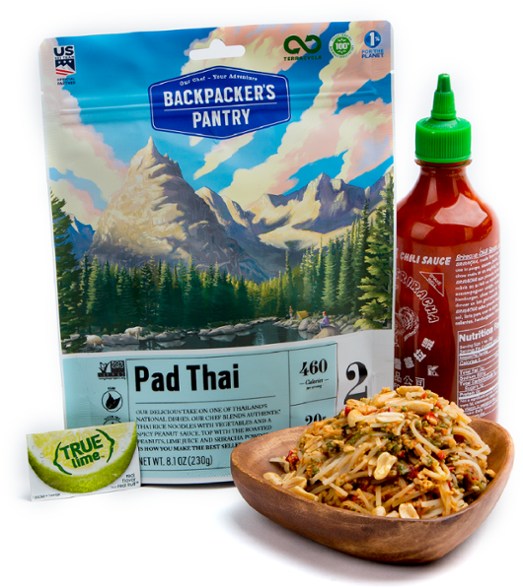
Backpacker’s Pantry admits it’s still working on becoming more sustainable, but for now the company’s popular backpacker meals are a solid option for hikers seeking lower-impact backcountry fare. Backpacker’s Pantry uses responsibly sourced and organic ingredients when possible, and powers its facility with wind power (they’re adding solar power soon too), and contributes to a number of conservation nonprofits. Plus, Backpacker’s Pantry meal pouches can be recycled through a partnership with Terracycle—simply request mailer envelopes from Terracycle for free; each one can fit about 10 to 12 empty pouches. The program also lets customers send in meal pouches from other companies (you know, Backpacker’s Pantry’s competitors). The company is also working toward making its pouches entirely energy-neutral.
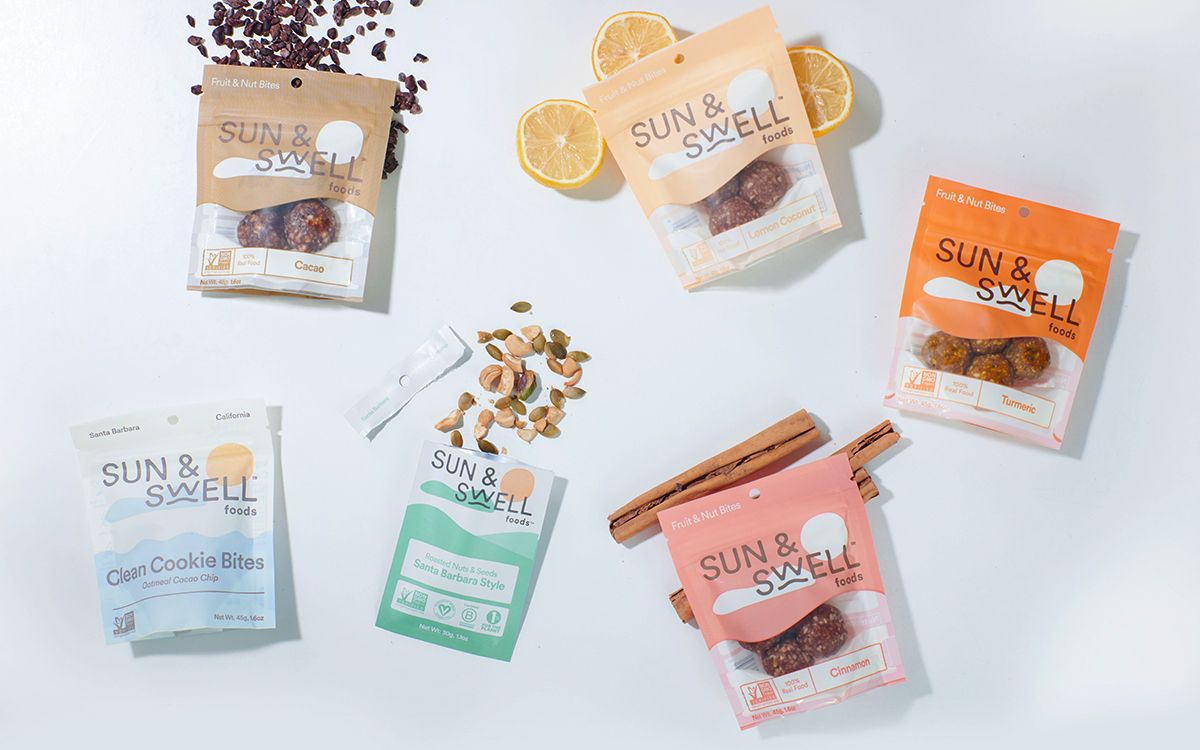
Sun & Swell’s commitment to sustainability and social welfare seeps into every aspect of the company, from its ingredient sourcing to its packaging. A certified B Corporation and a member of 1% for the Planet, Sun & Swell sells whole foods like chia seeds, date syrup, and quinoa along with snacks like crisps and cookie bites. Each item is certified organic and certified vegan, and company reps claim that Sun & Swell does its best to work with small suppliers that share the company’s values and ethics. All products are packaged in either compostable or recyclable bags. (Sun & Swell recommends customers opt for industrial composting when they can, though the bags will decompose in a home compost pile too.) Its other packaging is #2 recyclable, though the bags’ film means they’re not curbside recyclable—they’ll have to be brought to a drop-off location like a municipal recycling center, or a retail store with a collection bin.
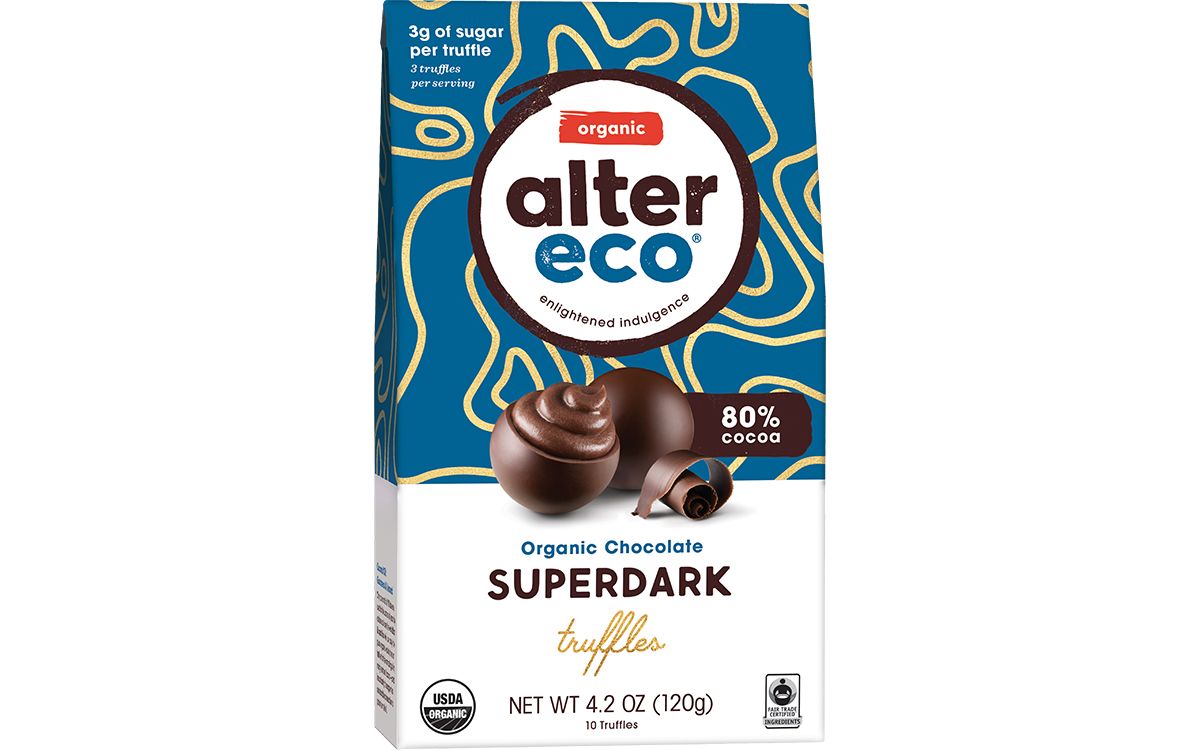
Alter Eco is here to help you indulge your guilty pleasures without feeling too guilty about your impact. The B Corporation makes chocolate bars and truffles using fair trade, organic cacao grown by South American farmers who have also committed to rainforest replanting efforts. Flavor options include salted caramel truffles, dark salted brown butter chocolate, and grass-fed milk chocolate with salted almonds. Boxes containing Alter Eco’s trail-friendly bars and truffles are recyclable, and the individual truffle wrappers are compostable. The company also sells quinoa—perfect for rounding out backpacking meals—bagged in what it claims is the world’s first compostable stand-up pouch made from renewable, plant-based, non-GMO materials.
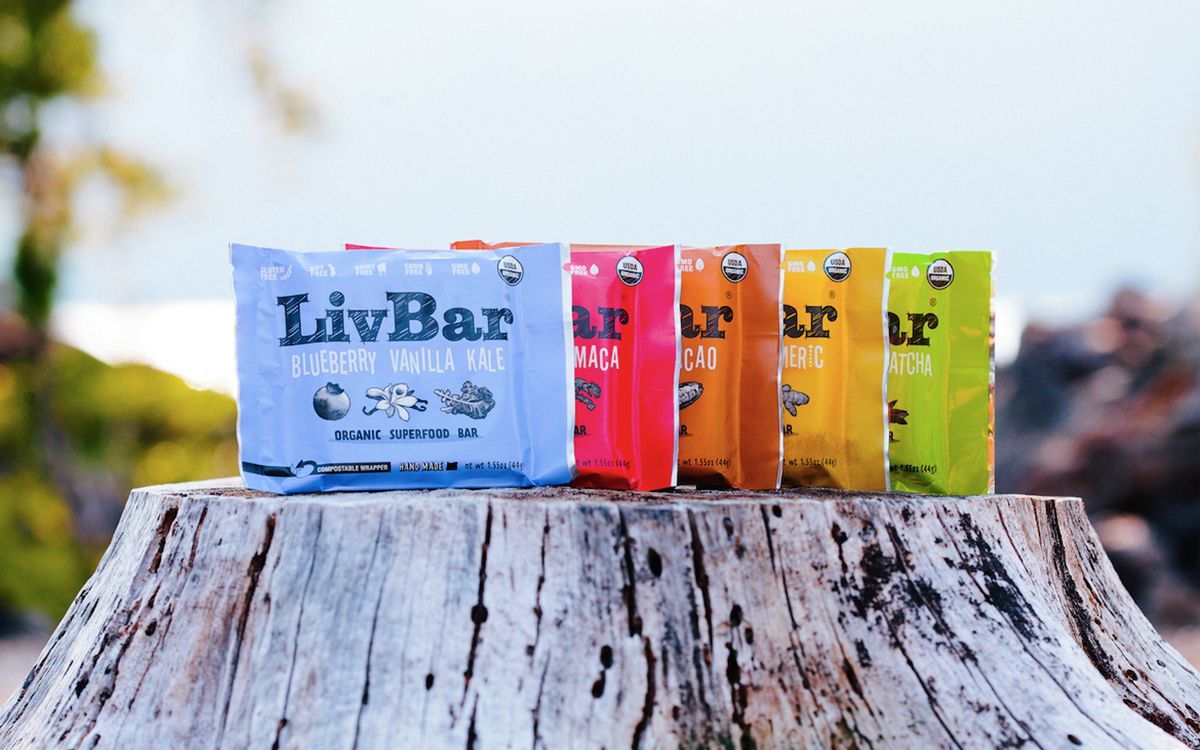
LivBar founder Jan Johansen is also a practicing nutritionist, so her perfect-for-the-trail bars are packed with nutrition and low in allergens. Flavor combinations include blueberry vanilla kale, coffee maple cacao, raspberry kale maca, and vegan lemon ginger turmeric. Johansen bakes her bars in a facility powered by solar panels and packages each one in a compostable cellulose wrapper. The company is also certified organic through both the USDA and Oregon Tilth.
 The Magazine of The Sierra Club
The Magazine of The Sierra Club
